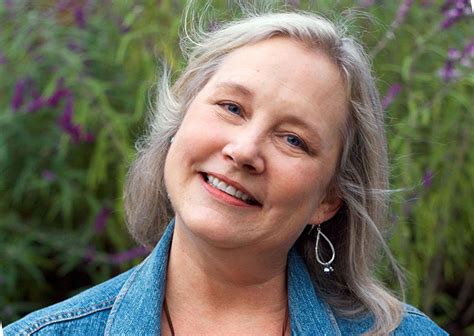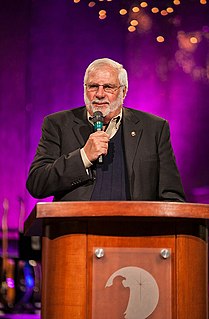A Quote by Ursula K. Le Guin
I think hard times are coming. We will need writers who can remember freedom. Poets, visionaries, the realists of a larger reality.
Related Quotes
I think hard times are coming when we will be wanting the voices of writers who can see alternatives to how we live now and can see through our fear-stricken society and its obsessive technologies to other ways of being, and even imagine some real grounds for hope. We will need writers who can remember freedom. Poets, visionaries-the realists of a larger reality.
Some who call themselves realists question whether the spread of democracy in the Middle East should be any concern of ours. But the realists in this case have lost contact with a fundamental reality: America has always been less secure when freedom is in retreat; America is always more secure when freedom is on the march.
Literature is the one place in any society where, within the secrecy of our own heads, we can hear voices talking about everythingin every possible way. The reason for ensuring that that privileged arena is preserved is not that writers want the absolute freedom to say and do whatever they please. It is that we, all of us, readers and writers and citizens and generals and goodmen, need that little, unimportant-looking room. We do not need to call it sacred, but we do need to remember that it is necessary.
We are coming to the times when passive Christianity and passive Christians will cease to exist. There is a maturity, a discipline and a divine militancy coming upon the people of God. Those who have succumbed to humanistic and idealistic theologies may have a hard time with this, but we must understand that God is a military God. The title that he uses ten times more than any other is "the Lord of Hosts", or "Lord of armies". There is a martial aspect to his character that we must understand and embrace for the times and the job to which we are now coming.
Another of the hard things about being in a war, grandchildren, is that although there are times of quiet when the fighting has stopped, you know you will soon be fighting again. Those quiet times give you the chance to think about what has happened. Some of it you would rather not think about, as you remember the pain and the sorrow. You also have time to worry about what will happen when you go into battle again.
I don't believe that fiction is dead. I know there are some people who believe that it's an outdated art form, and that to express truth today you need to work in different forms, to write books where it's perhaps not clear what's fiction and what's memoir. I have nothing against those books and love many of them very much. But we have enough space for everyone, traditional realists and hybrid writers, and experimental writers all.






































